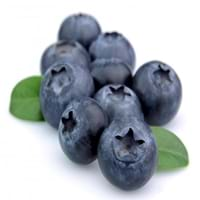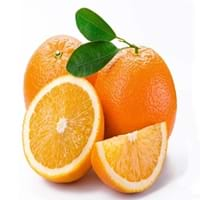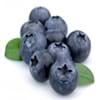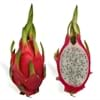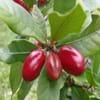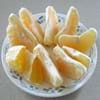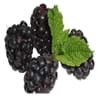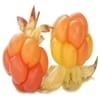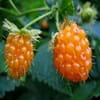Health Benefits
Cancer prevention, Heart care, Increases metabolic rate, Strengthening of bones, Treatment of skin Diseases
Arthritis treatment, Cancer prevention, Increases metabolic rate, Kidney stone treatment, Lower blood pressure, Prevents constipation, Prevents diabetes, Strengthening of bones, Ulcer treatment, Weight loss properties
General Benefits
Anti oxidant properties, Boosts immune system, Digestive aid, Eye care, Improves blood circulation, Sore throat treatment
Boosts immune system, Controls blood pressure, Digestive aid, Improves eye vision, Maintains healthy cholesterol level
Skin Benefits
Anti-aging benefits, Reduces wrinkles, Skin rejuvenation, Treatment of skin diseases
Anti-aging benefits, Brightens and lightens complexion, Hydrates skin, Skin rejuvenation, Treatment of acne, Treatment of dark spots
Hair Benefits
Protects hair
Good conditioner, Prevents hair loss, Regulates hair growth, Treatment of dandruff
Allergy Symptoms
Abdominal pains, Coughing, Diarrhea, Itching, Runny nose, Sneezing, Swelling of mouth, tongue or lips, Wheezing
Abdominal pains, Breathing difficulty, Coughing, Diarrhea, Drop in blood pressure, Fainting, Runny nose, Skin rash, Sneezing, Swelling of mouth, tongue or lips, Vomiting
Side Effects
Allergic reaction
Abdominal cramps, Diarrhoea, Weight gain
Best Time to Eat
Best if taken as a breakfast (or empty stomach), As a snack in the late afternoon, Don't consume at night and before bed, Eat the fresh ones, avoid mixing with any other foods, don't eat after meal., Morning time (before lunch)
As a snack in the late afternoon, Don't consume at night and before bed, Eat the fresh ones, avoid mixing with any other foods, don't eat after meal., Morning time (before lunch), Strictly avoid empty stomach
Vitamin A (Retinol)
Not Available
Vitamin B5 (Pantothenic Acid)
Not Available
Vitamin B6 (Pyridoxin)
Not Available
Vitamin B9 (Folic acid)
Not Available
Vitamin C (Ascorbic Acid)
Vitamin E (Tocopherole)
Not Available
Vitamin K (Phyllochinone)
Not Available
Lutein+Zeaxanthin
Not Available
Calories in Fresh Fruit with Peel
Calories in Fresh Fruit without Peel
Not Available
Calories in Frozen Form
Not Available
Calories in Dried Form
Not Available
Calories in Canned Form
Not Available
Varieties
Dwarf Huckleberry, Cascade Huckleberry, Mountain huckleberry and Blackwinter Huckleberry
Sweet Orange - Persian orange, Navel orange, Valencia orange and Blood orange. Sour Orange - Seville orange, Bergamot orange, Chinotto orange and Daidai.
Color
Blue, Purple, Purplish black
Orange
Inside Color
Purple
Orange
Origin
North America
South-Eastern Asia
Grows on
Not Available
Trees
Soil Type
Loamy, Sandy, Well-drained
Loam, Sandy loam
Climatic Conditions
Humid, Warm
Hot
Facts about
- "I'm your huckleberry" is a way of saying that one is just the right person for a given job.
- The phrase "a huckleberry over my persimmon" was used to mean "a bit beyond my abilities".
- There are around 600 varieties of oranges available worldwide.
- More than 1 plant can grow from a single orange seed.
- Orange and orange blossoms are a symbol of love.
- Orange tree is usually propagated by grafting.
Top Producer
United States of America
Brazil
Other Countries
Canada
China, Egypt, India, Italy, Mexico, South Africa, Spain, Turkey, United States of America
Top Importer
Canada
Germany
Botanical Name
Gaylussacia brachycera
Citrus sinensis
Synonym
Not Available
Citrus aurantium L. var. dulcis
Subkingdom
Tracheobionta
Tracheobionta
Division
Magnoliophyta
Magnoliophyta
Class
Magnoliopsida
Magnoliopsida
Subclass
Asteridae
Rosidae
Order
Ericales
Sapindales
Family
Ericaceae
Rutaceae
Species
G. brachycera
C. × sinensis
Generic Group
Heath
Citrus fruit
Compare Huckleberry and Orange
It is important compare Huckleberry and Orange as both the fruits have a different nutritional value. Their comparison can be done on the basis of their vitamin and mineral content, calories, benefits as well as characteristics, making it easier for us to choose the best fruit for our diet. Their general health benefits are as follows:
Huckleberry Benefits: anti oxidant properties, boosts immune system, digestive aid, eye care, improves blood circulation and sore throat treatment.
Orange Benefits: boosts immune system, controls blood pressure, digestive aid, improves eye vision and maintains healthy cholesterol level.
Fruits are also used as a remedy for various hair problems. The hair benefits of Huckleberry are: protects hair and hair benefits of Orange are: good conditioner, prevents hair loss, regulates hair growth and treatment of dandruff. Some fruits are known to cause allergic reactions. The allergy symptoms of first fruit are: abdominal pains, coughing, diarrhea, itching, runny nose, sneezing, swelling of mouth tongue or lips and wheezing and the symptoms of second fruit are: abdominal pains, breathing difficulty, coughing, diarrhea, drop in blood pressure, fainting, runny nose, skin rash, sneezing, swelling of mouth tongue or lips and vomiting. Get sorted Huckleberry vs Orange comparison with the help of fruit comparison tool by fruitvs.com.
